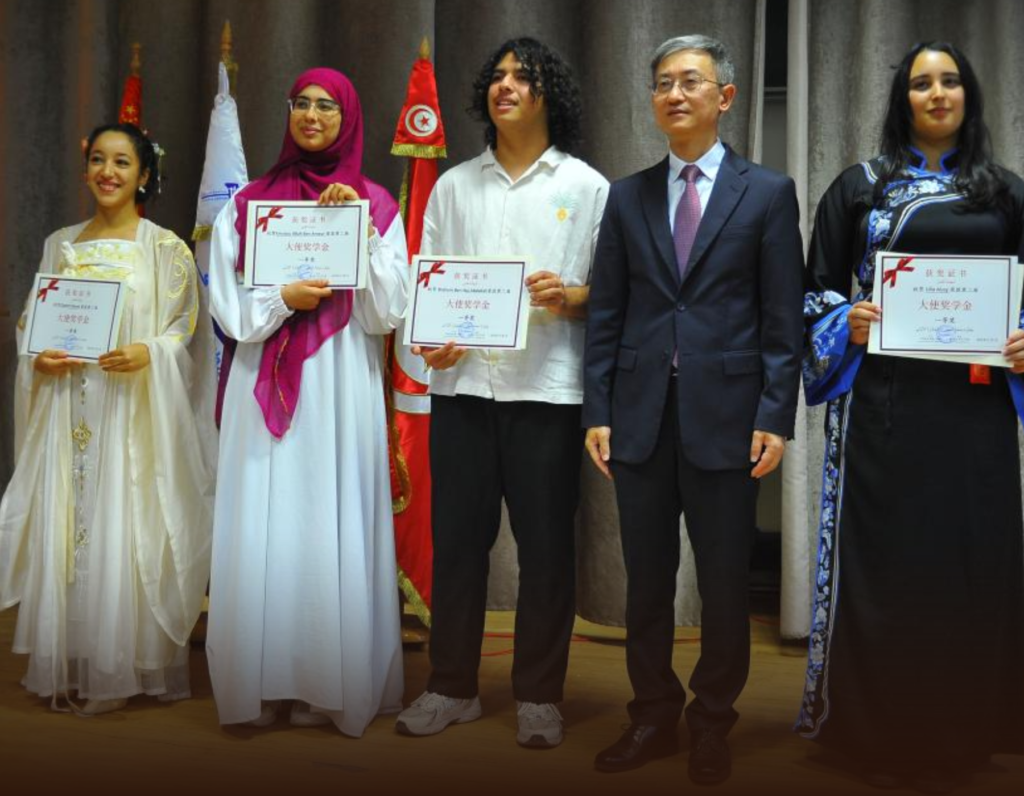In a powerful affirmation of educational and cultural diplomacy, thirty-nine Tunisian high school students were presented with the prestigious “Chinese Ambassador Scholarships” at an award ceremony in Tunis co-hosted by the Chinese Embassy in Tunisia, the Tunisian Ministry of Education and the Confucius Institute at Carthage University.
At the event on November 7, Chinese Ambassador Wan Li stated that the scholarship programme is designed not only to encourage more Tunisian students to study the Chinese language and pursue further education in China, but also to help them “better understand a real and multi-faceted China” and thereby strengthen the bonds of cooperation between the two nations.
The ceremony also honoured three Chinese-language teachers with “Excellent Teacher” awards, and granted a “Special Contribution” award to a Tunisian school principal. The selection of the 39 students comes amid a notable uptick in Chinese-language study in Tunisia. According to Ahlem Ben Soussia, coordinator of Chinese-language teachers in Tunisian high schools and one of the award recipients, the number of students studying Chinese rose to nearly 900 this year from around 683 the previous year.
This scholarship initiative is a concrete example of the deepening ties between Tunisia and China across multiple fronts. In May 2024, the two countries elevated their relations to a “strategic partnership”, following a state visit by Tunisian President Kais Saied to China. The announcement signalled Beijing’s readiness to work with Tunis in education, infrastructure, new-energy, health care and people-to-people exchanges.
Earlier this year, Tunisian diplomatic sources noted that cooperation now spans digital technologies, renewable energy, the training of engineers and academic mobility – an environment favourable both for students and strategically-important sectors in Tunisia.
For example, a scientific and technological cooperation agreement signed during a June 2025 visit by Tunisia’s Higher-Education Minister to Chengdu links Tunisian and Chinese universities in clean-energy research, while Chinese expertise supports solar and wind projects on Tunisian soil.
From the student perspective, the scholarship represents an invitation: to learn a priority second language (Chinese), to access Chinese higher-education institutions, and to enjoy strengthened cultural links. As Ben Soussia explained, this is intended to act “as a bridge for friendship, cooperation and mutual understanding.”
For Tunisia, the benefits extend beyond diplomas. The education-exchange pathway feeds into a skilled workforce, which aligns with the country’s vision to participate more actively in the regional tech/digital economy, renewable-energy value chains, and global-market integration.




